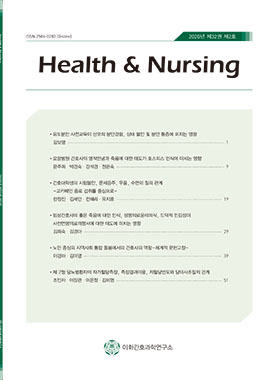Purpose: The purpose of this study was to investigate the test anxiety, problematic drinking, depression, and quality of sleep between high caffeine drink intake and non-intake group and identify factors influencing the quality of sleep among nursing students. Methods: The design of this study was a descriptive correlational study. 180 participants of 1th to 4thgrade nursing students completed the questionnaire. Data were analyzed by the SPSS/WIN22.0 using descriptive statistics, independent t-test, chi-square test, ANOVA, Pearson’s correlation and multiple regression. Results: The mean scores of test anxiety, problematic drinking, depression, and quality of sleep in the high caffeine drink intake group were significantly high compared to those of the non-intake group. Sleep quality showed a positive correlation with test anxiety and problematic drinking. High caffeine drink intake and problematic drinking were the influential factors predicting quality of sleep. Conclusion: This implies that health education and policies on managing sleep quality and intake of high caffeine drinks should be essential to promote the health of nursing students.




